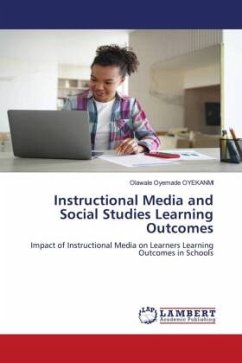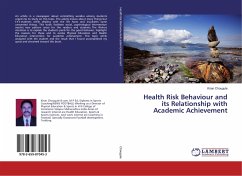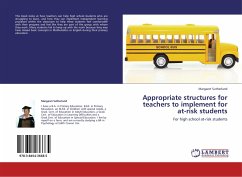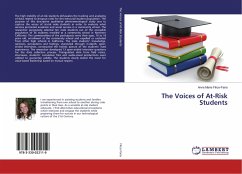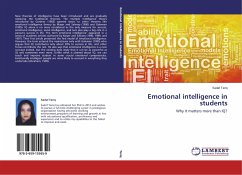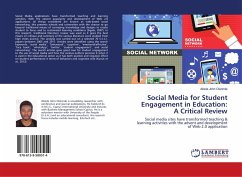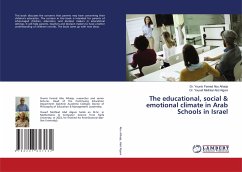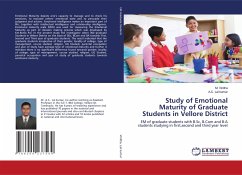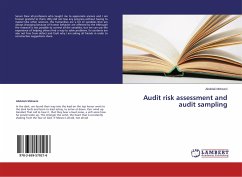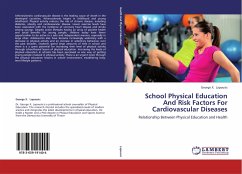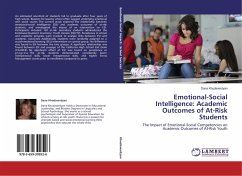
Emotional-Social Intelligence: Academic Outcomes of At-Risk Students
The Impact of Emotional-Social Competencies on Academic Outcomes of At-Risk Youth
Versandkostenfrei!
Versandfertig in 6-10 Tagen
27,99 €
inkl. MwSt.

PAYBACK Punkte
14 °P sammeln!
An estimated one-third of students fail to graduate after four years of high school. Reasons for leaving school often suggest underlying emotional and social causes. The current study explored the relationship between emotional-social intelligence (ESI) and academic outcomes of at-risk students, and investigated the impact of an intervention on ESI. Participants included 130 at-risk secondary students administered the Emotional Quotient Inventory: Youth Version (EQi:YV). Persistence in school and academic progress were tracked to analyze links between ESI and academic outcomes. Additionally, s...
An estimated one-third of students fail to graduate after four years of high school. Reasons for leaving school often suggest underlying emotional and social causes. The current study explored the relationship between emotional-social intelligence (ESI) and academic outcomes of at-risk students, and investigated the impact of an intervention on ESI. Participants included 130 at-risk secondary students administered the Emotional Quotient Inventory: Youth Version (EQi:YV). Persistence in school and academic progress were tracked to analyze links between ESI and academic outcomes. Additionally, students were randomly assigned to a social-emotional learning (SEL) intervention or control group. No difference was found in ESI between the two groups. A significant relationship was found between ESI and passage of the California High School Exit Exam (CAHSEE). No significant effect of ESI was found on persistence or progress. The at-risk students demonstrated consistently lower Interpersonal skills, lower Intrapersonal skills, and higher Stress Management scores prior to enrollment compared to peers.



